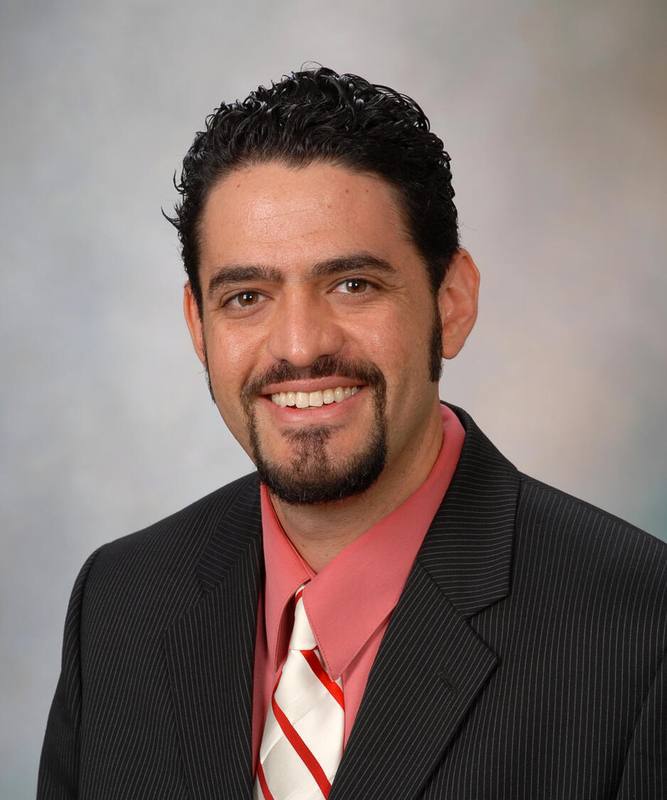-
Healthcare Delivery
Frailty linked to poor outcomes in pulmonary embolism patients

A recent Mayo Clinic study has linked frailty to poor outcomes for patients suffering from pulmonary embolism, a blood clot that blocks and stops blood flow to an artery in the lung. Frailty is a condition that often accompanies aging and is characterized by a reduced ability to cope with acute stressors, such as illnesses or injuries.
The findings underscore the importance of managing chronic health conditions among older people and countering those and other factors that contribute to frailty, when possible, the researchers say.

Researchers applied an assessment tool known as the Hospital Frailty Risk Score (HFRS) to sort patients into low, medium and high-risk groups. The study included 288,070 patients 65 years or older with a primary diagnosis of pulmonary embolism.
"We discovered that patients with higher frailty risk, as indicated by their HFRS, experienced significantly higher all-cause in-hospital mortality rates compared to those with lower frailty risk," says Pablo Moreno Franco, M.D., senior author of the study. He and his research team also learned that frailer patients needed more aggressive treatments.
Dr. Moreno Franco is chair of Critical Care Medicine at Mayo Clinic in Florida, and has a joint appointment in Transplantation Medicine. He chairs Mayo Clinic Quality in Florida and regularly collaborates with the Mayo Clinic Robert D. and Patricia E. Kern Center for the Science of Health Care Delivery, on research like the current study to improve or transform the practice of medicine.
Findings allow for improved, individualized care

"Working with our Acute Care Research Consortium M.D. trainees during their time at Mayo on this retrospective analysis was a pleasure," says Terri Menser, Ph.D., a Florida-based collaborative scientist in the Kern Center for the Science of Health Care Delivery and expert in mixed methods studies.
"By utilizing the National Inpatient Sample, the largest publicly available U.S. inpatient, all payer database, we were able to capture a much broader sample that yielded more generalizable findings."
The findings revealed that patients with high frailty risk were more likely to be older and female, with a higher frequency of comorbidities such as heart attack, congestive heart failure, cerebrovascular disease, dementia, diabetes and kidney diseases compared with those with medium and low frailty scores, the researchers say.
The investigators also discovered that frailty was associated with increased odds of needing invasive interventions for pulmonary embolism, such as thrombolysis, thrombectomy and mechanical ventilation, as well as a higher likelihood of complications like acute kidney injury and cardiogenic shock.
"These findings underscore the importance of considering frailty in the management and treatment of older patients with pulmonary embolism, as it can be a crucial predictor of adverse outcomes," says Dr. Moreno Franco.
The response, he says, should both include raising awareness in patients of the risks of frailty and encouraging them to make proactive changes to counter it where possible. Regular check-ups to monitor and manage comorbidities like heart disease, diabetes and kidney issues can help, he says.
"Preventative measures to counteract frailty include maintaining a balanced diet, engaging in regular physical activity and staying socially active," says Dr. Moreno Franco.
People also can do strength and balance exercises that can help improve resilience and reduce the risk of falls and other complications.
"It's all about taking proactive steps to maintain overall health and well-being," he says.
The study's authors further emphasize that by recognizing frailty early, healthcare teams can implement targeted interventions, such as more frequent monitoring, personalized treatment plans and proactive management of comorbidities, which ultimately leads to better patient outcomes.
Dr. Moreno Franco says that the collaborative efforts of the Kern Center and Mayo's Florida-based Acute Care Research Consortium team were invaluable to the success of the study.
Review the study for a complete list of authors, disclosures and funding.
About Mayo Clinic Robert D. and Patricia E. Kern Center for the Science of Health Care Delivery
The Mayo Clinic Robert D. and Patricia E. Kern Center for the Science of Health Care Delivery collaborates with clinical areas across Mayo to create and evaluate data-driven solutions to transform the experience of health and healthcare for patients, staff and communities. It drives continuous improvement of Mayo Clinic as a learning health system, enabling safe, evidence-based, high-quality care.
Related Articles







